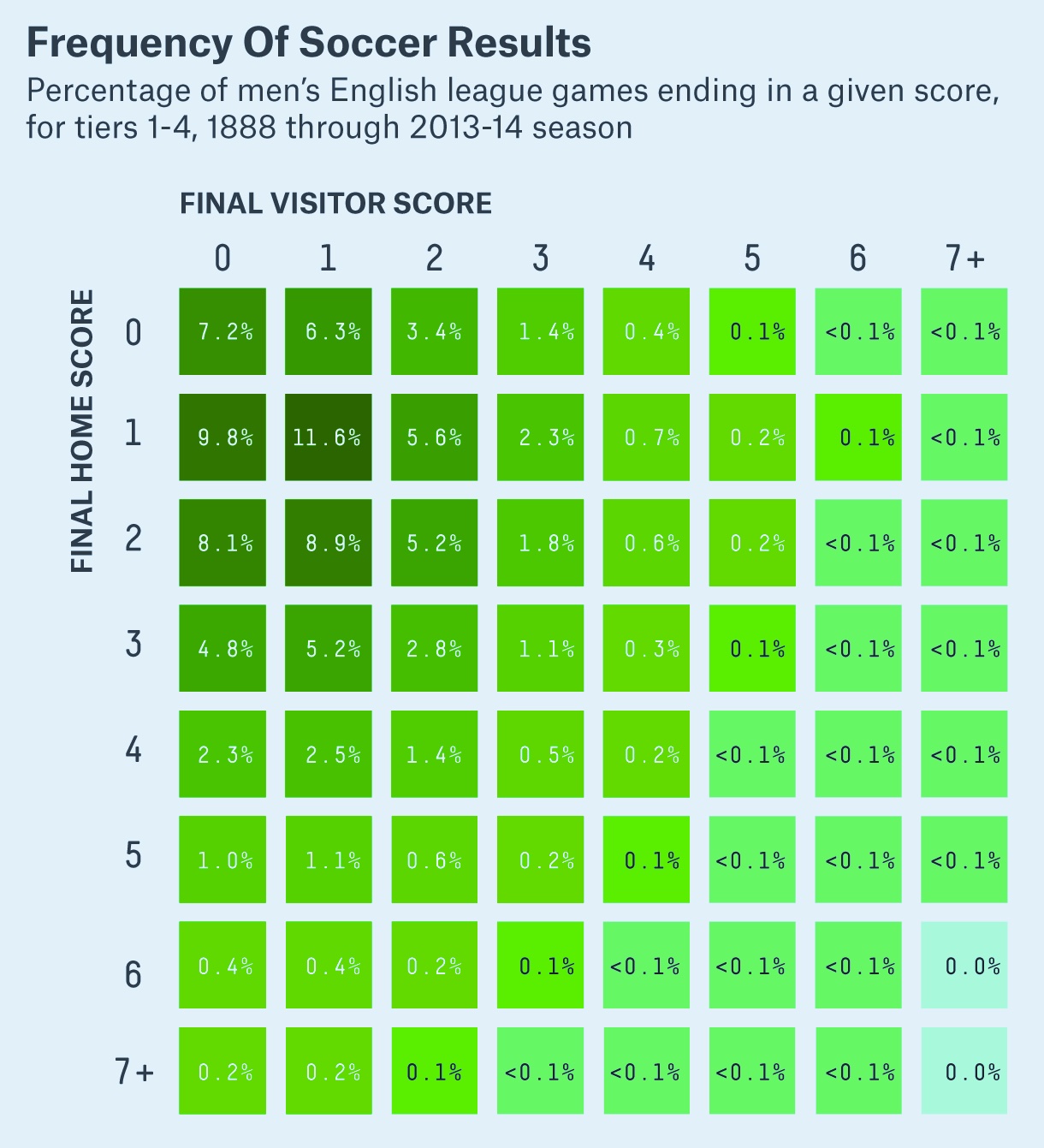- Home
- Wiki
- Learning Center
- Understanding Odd/Even Goals Bets
Understanding Odd/Even Goals Bets
- 1Understanding Goals Odd/Even Bets
- 2What Does "Odd Number" Mean in Goals Odd/Even Bets?
- 3Goal Sports Betting: Understanding the Meaning of "Even Goals"
- 4Is 0-0 Considered Odd or Even in Betting?
- 5Goal Sports Betting: Should You Bet on Odd or Even Goals?
- 6Should You Bet on Odd or Even Goals in Sports?
- 7Can You Make a Profit Betting on Odd or Even Goals in Sports?
- 8Summary of Odd/Even Goals

For those dipping their toes into online wagering, there is a seamless pathway into this sphere with the straightforward 'Goals Odd/Even' betting option.
Our tech experts meticulously crafted this to provide a user-friendly, fluid experience. Whether you are a novice or a seasoned bettor yearning for a break from cumbersome apps, you have discovered the optimal platform for placing your bets on odd or even goals.
Should you find, yourself intrigued by the concept of 'odd/even' goal betting, rest assured that you've navigated to the ideal source of information. We present a comprehensive guide that will illuminate all the key aspects of this type of bet.
This tutorial aims to demystify the odd or even goal betting process, elucidate optimal circumstances for leveraging this strategy, and guide you towards potentially profitable outcomes. Furthermore, we will provide a balanced overview, shedding light on both the merits and demerits of odd or even goal wagers.
Understanding Goals Odd/Even Bets
'Odd or Even' goal betting is a method of wagering that hinges on whether the aggregate score at the conclusion of a game or match is an odd or even number.

This terminology might sound foreign if you're a newcomer to the realm of online betting or sports gambling in general. However, the odd/even betting style is a remarkably intuitive strategy for novices. Let's take a football match as an illustration. Upon the completion of a full 90-minute game, the scores of one or both teams are summed up.
Should this total to an odd number (1, 3, 5, etc.), it is classified as “Goals Odd”. Conversely, if the overall score from both teams in the match sums up to an even number (0, 2, 4, etc.), it would be categorised as “Goals Even”.
Let's visualise a football match between Southampton FC and Leeds United.
Should Southampton emerge victorious with a final scoreline of 2:1, it would signify that the total number of goals in the two halves amounts to three. This figure is derived from the addition of Southampton's two goals to Leeds United's solitary goal.
If you had wagered on an "Odd" outcome, you would emerge victorious, as three is an odd number. However, should Southampton win with a scoreline of 3:1, or the teams tie at 2:2, the total number of goals would be four. In such a case, you would lose your bet, as four goals constitute an even number.
Numerous punters are inclined towards odd/even bets as they maintain the bettor's engagement throughout the game, in contrast to other betting styles such as over/under. Consider a scenario where you have placed an over/under bet for fewer than 2.5 goals, and a third goal finds the back of the net. With your bet lost, you are likely to lose interest in the game. However, with an odd/even goals bet, you remain invested until the final whistle, as the outcome of your bet is contingent on the last goal scored.
What Does "Odd Number" Mean in Goals Odd/Even Bets?
The fundamental premise of an even/odd bet hinges on the prediction that the final cumulative score of goals or points will equate to either an odd or even number. When wagering on “Odd Goals”, you are forecasting that the match will culminate in an aggregate score that is an odd number.

This inherently eliminates the possibility of a draw. Hence, when you place a singular bet on "Odd", it signifies your belief that a draw is an unlikely outcome. This is a crucial factor to consider before placing such a bet, especially in the context of soccer. In fact, historical data indicates that approximately 25% of all English Premier League matches over the past 12 years have ended in draws.
You might assume that this can be circumvented by wagering on a knockout cup game instead of a league match, where extra time or penalties could tip the scales to prevent a draw. However, the crucial point to note is that the odd/even bet only considers goals scored within the conventional 90-minute playtime. Neither extra time nor penalty goals are accounted for. Therefore, if a match concludes at a 2:2 draw and penalties determine the winner, your bet will only pertain to the 2:2 score, resulting in a lost “Goals Odd” bet. However, injury time is incorporated into the calculation since it compensates for the time lost during the 90-minute gameplay.
In essence, an odd goal wager is deemed victorious if the total number of goals scored by both teams at the end of regular playtime amounts to an odd number.
Goal Sports Betting: Understanding the Meaning of "Even Goals"
"Even Goals Betting" essentially stands as the converse of "Odd Goals". When engaging in an "Even" wager, you are speculating that the total number of goals netted by both teams will amount to an even number at the conclusion of regular playtime.

Similar to "Goals Odd", "Even Goals" doesn't factor in additional time or penalty shootouts. However, these outcomes hold little relevance in this context. Interestingly, "Even Goals" bets serve as a safeguard against draws.
Those well-versed in betting know the unpredictability inherent in 1X2 bets, where draws can skew results and odds. As previously mentioned, draws occur in soccer about 25% of the time, a significant statistic to disregard. However, when placing a "Goals Even" bet, a draw becomes an ally, given that a draw always yields an even number.
In summary, "Even Goals" encapsulates a type of wager wherein you predict that the combined total of goals scored by the end of a match will be an even number.
Is 0-0 Considered Odd or Even in Betting?
0:0 (nil-nil) in football is considered an even result. In mathematics, zero is classified as an even number because it is divisible by 2 without leaving a remainder. However, in the context of football matches, whether the result is even or odd does not impact the outcome or the nature of the game. The designation of a draw or a tie is based on the fact that both teams have scored an equal number of goals, resulting in a balanced and equal outcome.
Goal Sports Betting: Should You Bet on Odd or Even Goals?
Typically, bookmakers strive to maintain parity in the odds for both odd and even outcomes. On the surface, it might appear that there's a 50/50 chance with only two potential outcomes - even or odd. However, upon deeper examination, this is not invariably the case. The average number of goals or points scored in a particular sport often influences this.
Let's utilise soccer as an instance. The probability of a soccer match concluding with more than six goals is minimal, per the chart referenced. Given that zero is deemed an even number in the context of odd/even goals, the possibility of a nil-nil result tilts the scale in favour of actual outcomes.

For a “Goal Even” bet to yield a win, the final score is likely to be among the following: 0-0, 1-1, 1-3, 1-5, 2-0, 0-2, 2-2, 2-4, 3-1, 3-3, 4-0, 0-4, 4-2, 5-1, 6-0, or 0-6.
On the other hand, for a “Goal Odd” bet to deliver a win, the concluding tally of goals is expected to align with one of the following scores: 1-0, 0-1, 0-5, 1-2, 1-4, 2-1, 2-3, 3-0, 3-2, or 4-1.
Considering the rarity of matches exceeding six goals, the outcome tends to lean slightly towards "Even Goals", as scores such as 0-0 and a total of six goals contribute towards an even outcome.
Benefits of Betting on Odd/Even Goals in Sports
An Excellent Starting Point for Novices
Odd/even betting is an entertaining and simple-to-grasp avenue, offering a relatively high winning probability - the outcome is invariably either even or odd! In this respect, it is a delightful option for those seeking a leisurely wager without delving into extensive team statistics and intricate predictions. More often than not, the odds are well-balanced, enhancing its appeal.
Relatively High Winning Odds
The odds in odd/even betting are typically balanced for either outcome. This is attributed to the roughly equal chances - about 50/50 - of getting it right, irrespective of whether one pore over the stats. This 50% probability presents a quite tempting prospect to bettors.
Protection from Draw Outcomes with Even Bets
As veteran bettors can attest, a draw can significantly impact your predictions, particularly when dealing with outright winner bets (1X2).
As highlighted earlier, approximately 25% of soccer matches end in draws, making it a critical element to consider in your betting strategy. Odd/even bets, excluding extra time and penalties, always leave room for a possible draw. Importantly, a draw always culminates in an even total of goals. Hence, wagering on an even number of goals can add a layer of security to your stake.
Drawbacks of Odd/Even Betting
Lower Odds Equate to Smaller Returns
Given the near 50/50 likelihood of clinching a win in odd/even bets, the odds are usually low. Consequently, the profits derived from such total odds and even betting strategies can be relatively modest.
Not an Ideal Choice for Parlay Betting
For those who prefer strategising with parlay betting, achieving the desired profitability with odd/even wagers might be challenging. This is primarily due to the odds seldom surpassing the 2.00 mark, making it difficult to recuperate your stake if one of your predictions in the bet does not materialise.
The appropriateness of odd/even betting largely hinges on your betting aspirations. If you are a seasoned gambler with an ambition to amass significant profits through strategic wagers, odd/even bets may not fit the bill. Their relatively low odds yield minimal returns, making them a less desirable option for system bets.

Conversely, if you aim simply to engage in a light-hearted betting venture, odd/even bets could be your perfect match. They offer nearly a 50% chance of winning on either side. While the odds might be low, it is a testament to the high winning probability, making it a potentially pleasing profit for novice bettors enjoying the thrill of the game.
Furthermore, if your interest lies in a betting form that sustains your engagement throughout the game, total odds/even betting is an excellent choice. It adds a flavour of excitement to the entire match duration, as the outcome of your bet is decided only at the very end. This contrasts over/under betting, where the outcome can become evident at any point during the game. In the case of odd/even betting, you are committed to the thrill of the game right until the final whistle.
Can You Make a Profit Betting on Odd or Even Goals in Sports?
Much like any betting strategy, odds/even bets yield profits upon a winning wager. The allure of this betting style lies in its high success probability, roughly estimated at 50/50, regardless of the option you opt for. Despite the role that statistics and analytics may play, the possibility of garnering a small profit from this type of bet is considerably high.
However, it's crucial to bear in mind that due to these elevated winning odds, the stakes offered are usually quite low. It's a rarity to see stakes exceeding 2.00 when placing an odds/even bet on an entire game. This implies that while the payout for a winning bet exists, it is typically modest.
Nonetheless, there are several tactics that could potentially enhance your earnings. First, consider placing bets on first-half goals. As bookmakers generally have an easier time predicting first-half goals based on historical gameplay, the odds for odd/even bets in the first half tend to be higher.
Additionally, betting on an underdog team can sometimes yield a larger profit for odds/even betting. In cases where there is a clear favourite, the odds for the underdog to score an even number of goals are usually lower, as bookmakers might not anticipate them scoring at all. As a result, "Odd" bets often carry higher odds. If the underdog scores, you stand to garner a substantial profit.
Some punters also employ progression systems to bolster their odds/even betting earnings. This strategy involves waiting until the third match of a season and selecting teams that have consistently finished their games with odd totals. You would then wager on the next match to conclude with an even total. If the bet is unsuccessful, you increase your stake by a factor of 2.2 for the next bet.
Hence, if your initial stake was 300 NGN, your second stake would amount to 660 NGN. If this bet also falls through, you amplify the stake by 4.4, bringing it to 2904 NGN. The underlying premise of this strategy is that, eventually, your bet will come through, covering all previous losses.
However, while potentially profitable, this approach comes with considerable risk and could rapidly drain your betting account if a few rounds go awry. Hence, caution is advised to prevent such bets from spiralling out of control.
Summary of Odd/Even Goals
"Goals Odd/Even" betting indeed stands as a simple, engaging betting strategy well-suited for those seeking a fun wagering experience rather than a profit-oriented venture. With roughly a 50/50 chance of a successful outcome, this type of bet offers a good probability of paying out. However, the flip side of this high win likelihood is relatively low odds, which in turn means lower potential profits.

Due to the evenly balanced odds, seasoned gamblers often view this betting type as more of a guesswork exercise. Relying heavily on statistics doesn't necessarily improve your chances of winning, given the inherently balanced nature of the bet.
That being said, if you wish to employ a progressive betting system to potentially increase your profits, taking into account a team's recent game outcomes could prove helpful. However, always bear in mind that progressive betting systems come with their own set of risks and should be approached with caution.
FAQ
In an Odd/Even Goals bet, you predict whether the total number of goals scored in a match will be an odd or even number. If you choose Odd, you win if the total number of goals is 1, 3, 5, and so on. If you choose Even, you win if the total number of goals is 0, 2, 4, and so on.
The total number of goals is the sum of the goals scored by both teams during the entire match, including any extra time or penalty shootouts, depending on the sportsbook's rules.
Odd/Even Goals bets are based on the total number of goals in the match and not specific to a particular team. It considers the combined goals scored by both teams.
If the match ends in a draw, the total number of goals scored is considered even. So, if you placed an Even bet, it would be considered a winning bet.
Yes, some sportsbooks may offer variations of Odd/Even Goals bets, such as Odd/Even goals per team or Odd/Even goals per half. These variations focus on the individual teams' or specific halves' goal count.
Yes, you can combine Odd/Even Goals bets with other betting options, such as match winner, total goals, or specific player bets, in order to create a multiple bet or accumulator.
The odds for Odd/Even Goals bets are determined by the sportsbook based on the perceived likelihood of the outcome. Odds may vary depending on the teams, their offensive and defensive strengths, and other factors.

Comments0